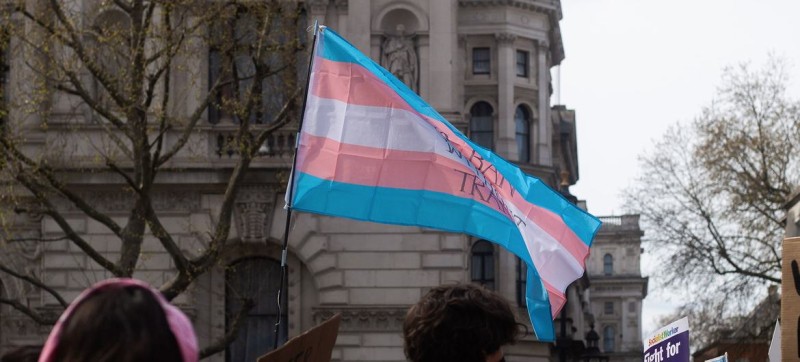
Unsplash/Karollyne Hubert Trans people and their allies protest in the UK.
“I am deeply concerned about increased bias-motivated incidents of harassment, threats, and violence against LGBT people, including a rampant surge in hate crimes in the UK,” said Victor Madrigal-Borloz, the human rights expert on protection against violence and discrimination based on sexual orientation and gender identity, who completed an official visit to the country on 5 May.
“All of this is attributed – by a wide range of stakeholders – to the toxic nature of the public debate surrounding sexual orientation and gender identity,” said the Human Ritexpert.
Mr. Madrigal-Borloz warned that these developments could endanger very significant achievements, built over decades, to address violence and discrimination in the country.
Violence and discrimination risk
In an extensive statement after his 10-day visit, Mr. Madrigal-Borloz lauded achievements in data gathering and said the UK was poised to take transformational public policy steps, on the basis of solid evidence.
The data makes it possible to determine social exclusion against LGBT persons but, equally importantly, the way factors such as race, ethnic background, and socio-economic status interact with sexual orientation and gender identity to exacerbate the risk of violence and discrimination, he said.
Mr. Madrigal-Borloz also noted the progress made through strategies, plans of action and public policies, which are evident in all four nations of the UK.
He was also encouraged by the actions of national governments and civil services in Wales, Scotland, and Northern Ireland in relation to devolved competencies in health, education, housing, and employment.
While acknowledging achievements in health and education, he expressed concern at the overrepresentation of LGBT persons among the homeless population in homelessness and relatively scarce data in relation to employment.
“Waiting lists for gender affirming treatment at the National Health Service continue to be years-long, and current initiatives risk erosion of achievements in comprehensive sex education,” the independent expert said.
Tweet URL
Fighting for protection
The expert expressed grave concern about delays in long-promised legislation to ban the practice of “conversion” of sexual orientation and gender identity.
“The vicissitudes of this and other necessary public policies appear to be connected to political discourse concerning gender-diverse persons and refugees and asylum seekers, two areas in which recent State actions are cause for concern,” Mr. Madrigal-Borloz said.
He cited the example of the Illegal Migration Bill, and blanket policy decisions in relation to trans persons deprived of liberty.
The expert also took issue with recent advice by the UK Equalities and Human Rights Commission to the Government in Westminster, that promoted the reduction in human rights protections for trans persons with legal recognition of their gender.
“These actions were admittedly with the objective of withdrawing trans women from legal protections to which they are entitled under the Equality Act,” Mr. Madrigal Borloz said.
Demanding political accountability
The expert urged all stakeholders to recognise that democracies benefit from healthy debate, in an environment that includes protection of free speech, and accountability for hate speech, yet reminded them that they must keep the objective of human rights protection at the centre of State and non-State action.
“Politicians must carry out evidence-based evaluations, free from stigma and preconception,” the independent expert said.
Special Rapporteurs and other UN Human Rights Council-appointed rights experts, work on a voluntary and unpaid basis, are not UN staff, and work independently from any government or organisation.

